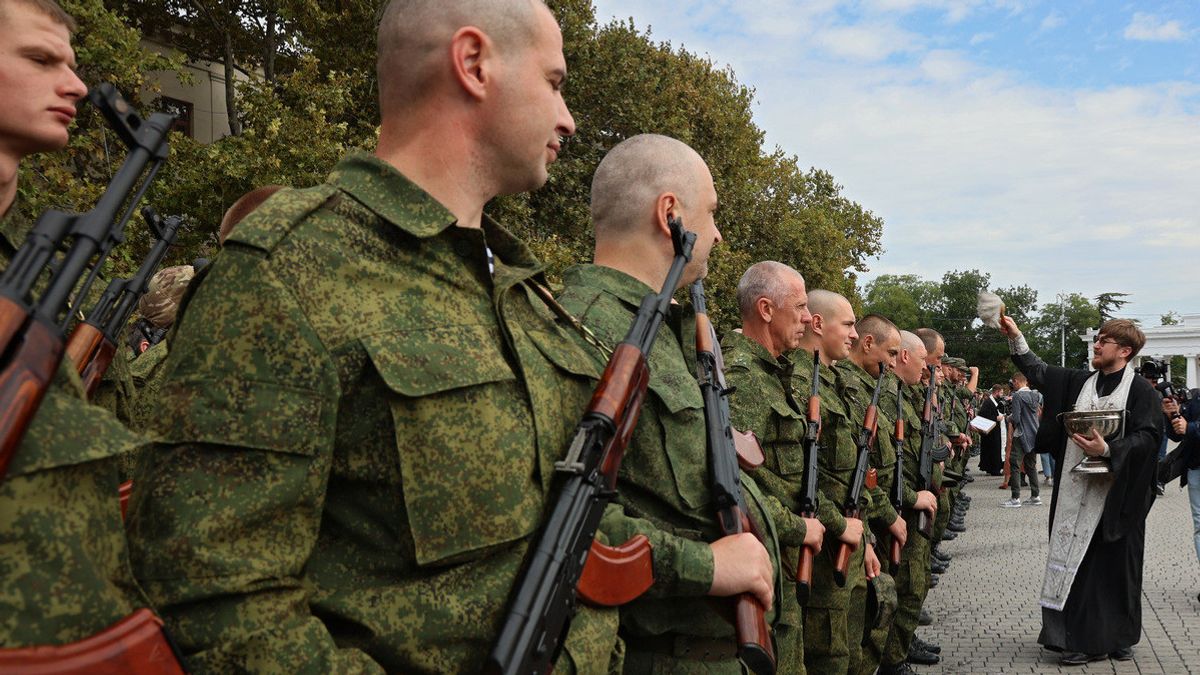JAKARTA - A Russian military officer who illegally crossed into Kazakhstan for objections to the Ukrainian invasion has been detained in the country, his family said, leaving the local authorities in a diplomatic dilemma over whether to hand it over to Moscow.
Hundreds of thousands of Russians fled to Kazakhstan and other neighboring countries after the war began. Many of them were civilians crossing legally, trying to avoid Russian mobilization orders.
As a military officer, Major Zhilin is prohibited from leaving Russia. He illegally crossed into Kazakhstan in September, when it became clear he could be sent to Ukraine, his wife Yekaterina said.
He traveled to Kazakhstan legally with their two children.
"As someone who disagrees with Russia's leadership actions in connection with Ukraine, I cannot legally leave Russia even if I have resigned from military service, because I am prohibited from doing so as a person who has access to classified information," he said, citing him.
Kazakh police documents, which he showed to Reuters, stated he had been detained on suspicion of violating Russian law. It quoted Russian Criminal Code articles on desertion and crossing Russia's borders illegally.
Kazakhstan, a former Soviet republic that rejected its request for refugee status, did not support Russia's decision to invade Ukraine but was unable to isolate its giant neighbor, its main trading partner.
Zhilin, a communications specialist, was detained and tried for illegal entry by a court in the city of Semey, eastern Kazakhstan. He was sentenced to six months probation and ordered to be deported to Russia.
To avoid deportation, Zhilin made a failed bid for a meeting at the Canadian consulate in Astana and then tried to fly to Armenia, but was detained at the airport.
He is now awaiting a court decision on whether to extend his detention.
Meanwhile, the Kazakh Interior Ministry did not immediately comment on the case. Meanwhile, Zhilin's lawyer declined to comment by telephone. Separately, Russian authorities did not immediately respond to a Reuters request for comment on the case.
The English, Chinese, Japanese, Arabic, and French versions are automatically generated by the AI. So there may still be inaccuracies in translating, please always see Indonesian as our main language. (system supported by DigitalSiber.id)













